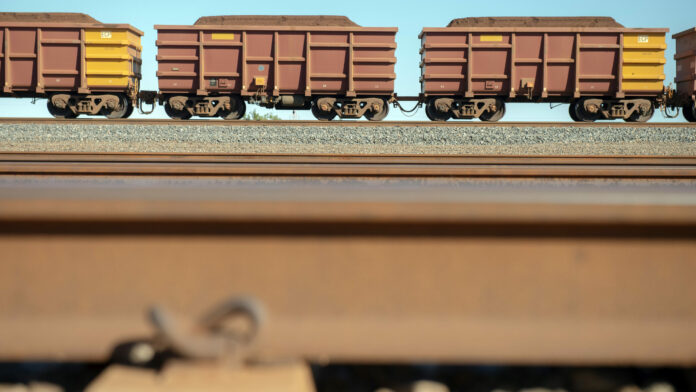
THE performance of Transnet Freight Rail (TFR) has deteriorated this year despite efforts by the mining industry to nail down efficiency improvements.
The Minerals Council unveiled a collaboration with Transnet in January aimed at improving bulk rail and ports infrastructure performance. But progress has been in short supply, said Tharisa CEO Phoevos Pouroulis.
“This is a major infrastructural government-led business and decisions take a long time to be made, and changes even longer,” Pouroulis said in an interview today. “This is not a reflection on any leadership forum, but things are not changing quickly if I’m being honest about it.”
Tharisa is a member of the Chrome Leadership Forum hoping to secure partnerships with TFR in respect of maintenance, procurement and planning. The Minerals Council established three other forums for the country’s iron ore, manganese and coal industries.
Roger Baxter, the outgoing CEO of the Minerals Council said in February he was hopeful of making advances with TFR but since then there has been no information from the council. Instead, there have been setbacks.
A derailment on May 12 near Vryheid involving 56 coal-laden wagons and locomotives has taken the ‘tempo’ of coal deliveries – average monthly deliveries annualised – to the industry-owned Richards Bay Coal Terminal to below 50 million tons. At this level, coal deliveries to RBCT in 2023 will match last year’s 30-year low.
“We’ve seen it decay over the last five to 10 years and a leading indicator was efficiencies and then infrastructure failures and then theft on the lines,” said Pouroulis of the rail and port network for chrome deliveries.
“We would like to think that with industry there can be some improvement but I don’t see much changing in the short term; maybe improvements in efficiencies in available capacity ports and then moving back into the network,” he added.
He said the Chrome Leadership Forum was “proactive and front-facing” but that the entire mining industry was fighting for a seemingly ever-falling allocation. “It becomes a challenge for TFR and Transnet to manage to allocate the remaining capacity,” he said.
“Where we used to get a number of trains a week we get some sporadically every other week. It is not getting better as we sit here so needs to be some intervention.” About 85% of Tharisa’s mined product for export is delivered by road.











